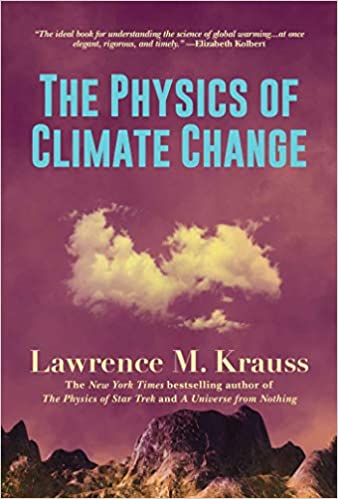Science
Why Is Scientific Illiteracy So Acceptable?
The Enlightenment was well-named because it led to a greater understanding of ourselves, our society, and our environment, and was accompanied by the rise of the scientific method.

In the mid-1980s, when I taught a Physics for Poets class at Yale University, I was dumbstruck when I gave the students a quiz problem to estimate the total amount of water flushed in all the toilets in the US in one 24-hour period and I started to grade the quiz. In order to estimate this, you have to first estimate the population of the US. I discovered that 35 percent of my Yale students, many of whom were history or American studies majors, thought the population of the US was less than 10 million! I went around campus interrogating students I met, asking them what they thought the population of the US was. Again, about one-third of the students thought it was less than 10 million and a few even thought it was greater than a few billion.
How was such ignorance so common in a community commonly felt to contain the cream of the crop of young US college students?
Then it dawned on me. It wasn’t that these students were ignorant about US society. It was that they were rather “innumerate,” as the mathematician John Allen Paulos had labeled it in a book he wrote in the 1980s. They had no concept whatsoever of what a million actually represented. For them, a million and a billion were merely both too large to comprehend.
It remains a badge of honor for many who like to describe themselves as highly cultured or artistic to describe themselves as mathematically challenged, or to say that their brains aren’t wired for mathematics. Because many of those they hold in high esteem have made similar claims, there is no real social penalty to them for doing so.
When it comes to science rather than mathematics, it isn’t so simple. Proudly proclaiming scientific illiteracy is not de rigueur. Instead another refrain has recently become popular among politicians and public figures: “I am not a scientist, but…” Equally prominent, is the statement “I believe in science” (as if there is a choice) which is then followed by some scientific gibberish.
Science fiction writer Philip K. Dick once said, “Reality is that which continues to exist even when you stop believing in it.” The line between being scientifically or empirically controversial vs being politically controversial has been blurred to the point of erasure. In Washington, and many other seats of government throughout the world, belief trumps reality.
Different aspects of the problem were on display recently during the confirmation hearings of Amy Coney Barrett. When asked by Louisiana Sen. John Kennedy about her views on climate change, she said: “You know, I’m certainly not a scientist,” and added, “I have read things about climate change—I would not say I have firm views on it.” Later, following questions from Kamala Harris about whether she acknowledged a relationship between smoking and cancer, and whether the coronavirus is infectious, both of which she answered in the affirmative, she was asked, “And do you believe that climate change is happening and is threatening the air we breathe and the water we drink?” Coney Barrett responded, “I will not do that. I will not express a view on a matter of public policy, especially one that is politically controversial…”
It would have been appropriate for Justice Coney Barrett to argue in both cases that the confirmation hearing was not an appropriate place to discuss her scientific expertise but rather her legal expertise. However, that is different than claiming, as she did, to have insufficient knowledge of the issue to possess any viewpoint at all.
In this, and all areas where scientific evidence is both public and sufficiently overwhelming, public figures who even feign ignorance for reasons of political expediency should be called out. In her second exchange, having established her bona fides regarding the science of smoking or the coronavirus, an appropriate response from Justice Coney Barrett to Harris’s last question might have been to answer that yes, climate change is a scientifically established fact, but that she was not going to be roped into commenting on related controversial public policy questions.
By the same token Senator Harris’s last question reflects a pseudo-religious “I believe in science but I don’t need to think about what it actually means” mantra. Climate change, which is happening, presents numerous potential threats, but not to the air we breathe, as if it were akin to industrial pollutants.
I raise this point, which may seem like mere semantics, because we have to encourage intelligent and literate discourse from both sides of the aisle. Inappropriate claims like this by politicians who want to be on the right side of science but who can’t be bothered to think about what it implies don’t help. Rather they encourage rational skeptics and irrational deniers alike to reject the actual science by dismissing the statements of those who claim to defend it. Similarly, it also helps encourage a distrust of scientists.

I wrote my new book, which presents the fundamental science behind climate change, in part to specifically respond to this sorry state of affairs. Outrageous denials, or outrageous doom and gloom predictions equally subvert the ultimate goal, which is to develop rational public policy. Gaining a perspective of the fundamental science, which I would argue is not beyond the grasp of a Supreme Court Justice, or a United States Senator soon to be Vice-President, is a precursor to proposing rational policies to address one of the most significant global challenges of the 21st century.
I should underscore that when I discuss scientific illiteracy, I am not focusing on how many scientific facts people may remember. I rather mean the process of science: empirical testing and retesting, logical analysis, and drawing conclusions derived from facts and not hopes. The impact of increased CO2 on heat absorption in the atmosphere is something that can be tested, as can the expansion coefficient of water as heat is added, one of the key factors affecting measured sea level rise. Accepting the reality of these is not something that should disqualify you from, or assure you of, a government appointment.
An equally pernicious misunderstanding of the scientific process involves confusions about uncertainty, as we are witnessing with the current pandemic. Epidemiology is a very difficult part of science because it often relies on sparse data that is very hard to accumulate. Like all aspects of science, the conclusions one draws are only as good as the data one has. Yet, politicians and the public alike have often accepted sweeping claims about the perceived lethality or transmissibility of COVID-19 well before appropriate data has been available. Donald Trump was at one extreme, but others who exploited for political reasons early predictions that millions would die usually did not qualify their remarks with either a reasonable estimate of uncertainties, or with the proviso that this dire prediction was for a world where no ameliorative actions were taken.
It is possible, and indeed I expect likely, that we will not have firm knowledge about the details of its lethality or transmissibility for years, or at least until after the current pandemic is over. And even then, uncertainties will remain. This issue has recently taken on a more personal aspect for me, as I write this while convalescing from what appears to be COVID-19. (Thanks to the vagaries of the US healthcare system, and the recent surge of cases, the results of my test will take seven days to arrive, by which time I am hoping to be well on the way to recovery.)

When it comes to public perceptions of medical or scientific prowess, I blame in part science fiction programs on television or in feature films that give the illusion that faced with a technical problem, sufficiently talented scientists and engineers can both ascertain the cause and create a solution in hours instead of years or decades. That is just not the way science often works. Most important scientific developments are not revolutionary. More often than not they are baby steps taken along a long road of discovery. The recent announcement of two new COVID vaccine efficacies has been remarkable, so that perhaps by the end of 2021 most people will be vaccinated. But while two years is lightning speed in this area, many people remain surprised that it has taken this long.
Fewer people may proudly proclaim their scientific illiteracy than their innumeracy, but our cultural role models nevertheless often openly express their lack of comfort with questions that you shouldn’t have to be a scientist to understand or appreciate. I saw it when I taught at Yale, and I saw it in the Senate confirmation room. It is considered quaint to say something like, “my mind just doesn’t work that way” when it comes to science, as an excuse to stop thinking. But we wouldn’t accept that statement so easily if the question related to Shakespeare’s contributions to literature, or the historical impact of the Holocaust.
The Enlightenment was well-named because it led to a greater understanding of ourselves, our society, and our environment, and was accompanied by the rise of the scientific method. Acting for the common good requires subjecting our own ideas to empirical scrutiny, being open to considering and empirically testing the ideas of others, and letting empirical data be the arbiter of reality. The most compelling reason that all of us, most importantly our public figures, should take science seriously, and honestly, was expressed best by Jacob Bronowski, a personal hero who exemplified the union of the two cultures of science and humanities:
Dream or nightmare, we have to live our experience as it is, and we have to live it awake. We live in a world which is penetrated through and through by science and which is both whole and real. We cannot turn it into a game simple by taking sides.






